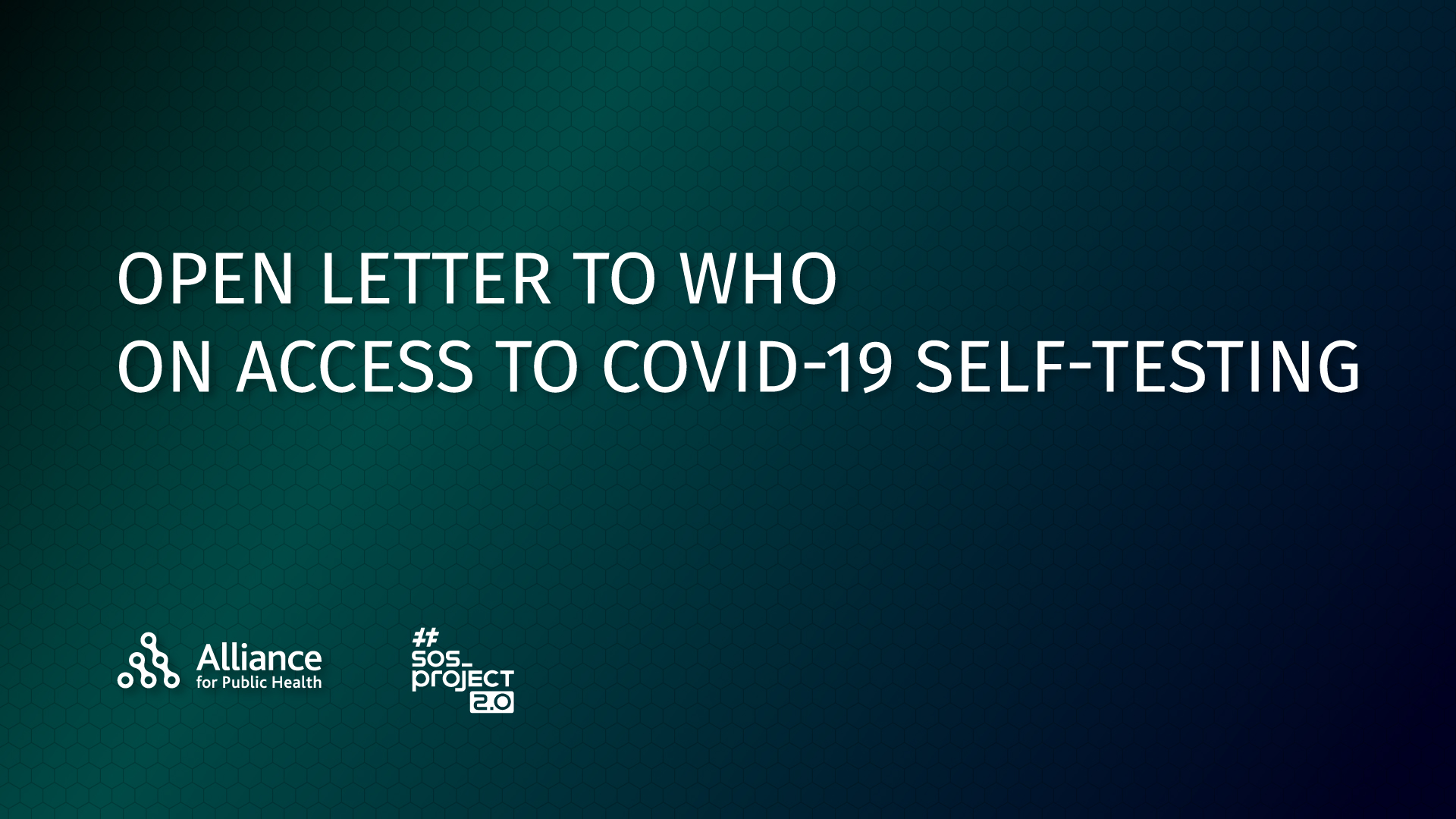Alliance for Public Health, as well as other 113 civil society organisations, clinicians, advocates, and communities affected by COVID-19 urge in the Open Letter the World Health Organisation (WHO) to rapidly recommend self-testing for COVID-19 and request a leadership in more broadly improving access to diagnostics for virus.
Specifically, signatories call on WHO to expedite the finalisation and release of a self-testing guideline for SARS-CoV-2 infection that includes a strong recommendation in favour of widespread access to self-testing. Three major reasons that access to diagnostics broadly, and rapid antigen detection testing (RADTs) for self-testing in particular, needs to be urgently accelerated:
- Individuals have a fundamental right to “know their status”.
- Self-testing is critical to prevent onward transmission and to empower individuals to protect their families and communities.
- Self-testing is a necessary tool to enable rapid linkage to care and initiation of outpatient treatment to prevent hospitalisation and death, especially among those at high risk of disease progression.
According to Nadiya Yanhol, C19RM Coordinator of the #SoS_project 2.0 at the Alliance for Public Health, expanding access to rapid tests for COVID-19, in parallel with vaccination, and especially against the backdrop of the emergence of the first drugs in Eastern Europe and Central Asia, is urgently needed in the region. “As part of the COVID program, we are approached by representatives of NGOs and representatives of key populations with a request to provide a COVID-19 antigen tests for self-testing. At the community level, timely identification of clients infected with the virus is very important, because there is a risk of stopping the work of vital HIV services, if quarantine is necessary. The use of tests should be as convenient and safe as possible. After all, the patient takes the analysis on his own, without the participation of the medical staff, which does not require additional material costs. This is very convenient and prevents further spread of COVID-19.”
The #SoS_project team saw certain risks in the fact that the available tests did not have individual packaging, therefore, to confirm the hypothesis, they conducted a survey among end-users of tests about the convenience of using them in non-individual packaging.
“66% of those surveyed used the test for self-testing. 55%* noted that they experienced obvious discomfort during testing, since the tests were not individually packaged. They noted that sterility is not ensured in this way due to the lack of individual packaging, which is a certain barrier. Today, this request still remains unanswered, as it is not possible to purchase tests in individual packages on the Global Fund’s procurement platform. Also, today there are no WHO recommendations and national guidelines in the EECA countries that would recommend the use of Sars-Cov-2 Ag rapid tests for self-testing.” – says Nadiya Yanhol.
*of respondents who used the test from the general packaging for individual testing

